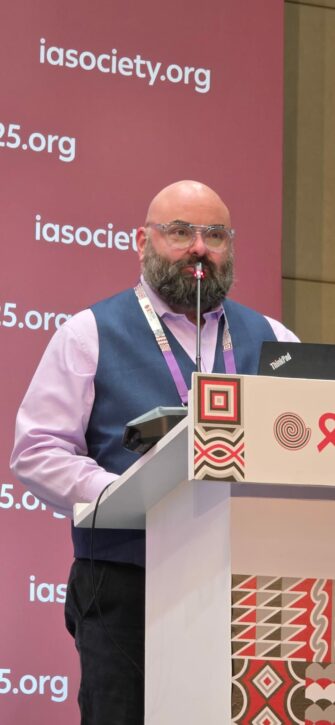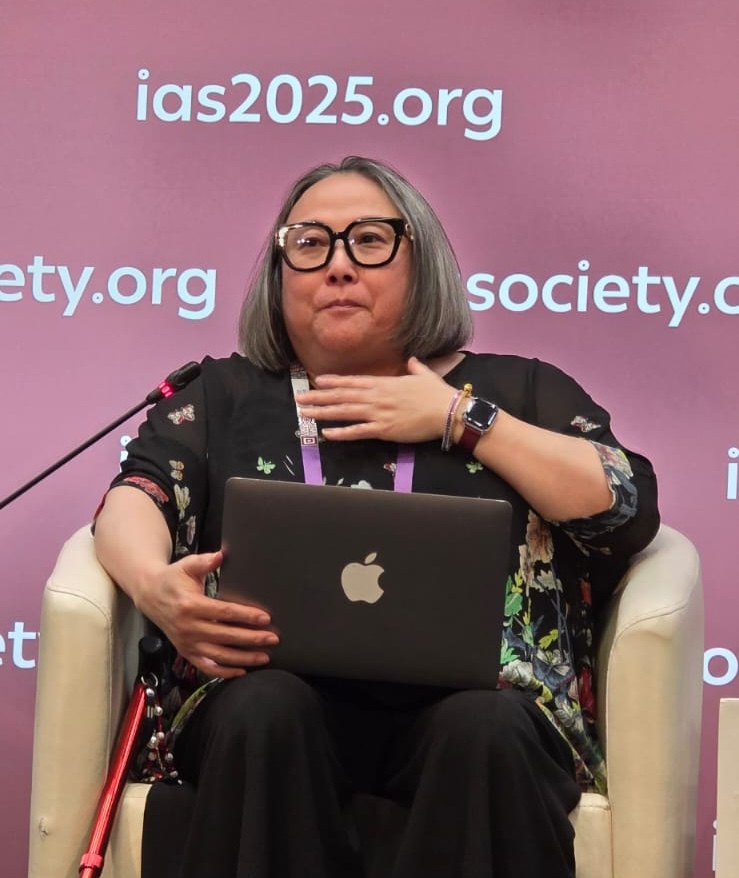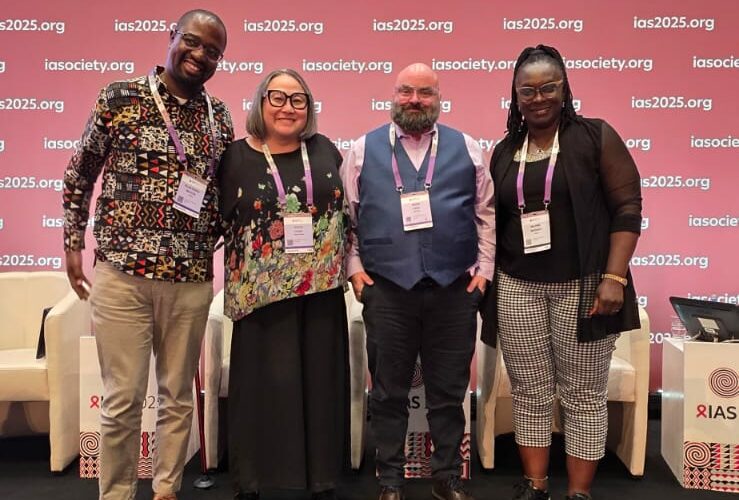At a powerful and urgent session at IAS 2025, community leaders, activists, advocates, and donors came together to confront a growing crisis: the rollback of rights-based approaches in the global HIV response. With rising anti-rights movements, defunding of international health programs, and increasing attacks on marginalized communities, the hard-won progress of recent decades is now at risk.
“Science is not enough” to combat HIV
Opening the session, Allan Maleche of the Kenyan Legal and Ethical Issues Network on HIV/AIDS (KELIN) issued a stark reminder:
Science is not enough when clinics are being shut down and human rights are being rolled back.
While scientific advancements have dramatically improved HIV treatment and prevention, communities around the world are facing a different kind of emergency, driven by political hostility and financial cuts. Across the session, it became clear: the HIV response is being threatened not by lack of innovation, but by shrinking civic space and the deliberate targeting of community-led health and human rights work – particularly for key populations such as trans people, sex workers, and people who use drugs.
An attack on rights, an attack on lives

Masen Davis of Funders Concerned About AIDS (FCAA) traced the spread of globally coordinated anti-rights agendas, which are increasingly influencing national policies and undermining decades of public health progress.
Programs that have saved millions of lives are being framed as threats to family values. We are at a tipping point… if we want to continue the progress we have made, we need to mobilize to fight the forces that are seeking to dismantle it.
The consequences are already being felt. Millions are losing access to HIV prevention tools like PrEP, and community safe spaces are closing around the world.
Alexandrina Iovita from the Global Fund described the challenge as a “polycrisis,” where multiple, intersecting emergencies – political, social, economic – are converging. In this context, she emphasized, centering human rights in health responses is not optional. It’s urgent.
Community, care, and resistance

In the face of repression, speakers highlighted what has always driven the HIV movement forward: community-led innovations, cross-movement solidarity, and grassroots organizing.
Cecelia Chung of the Transgender Law Center provided a unique perspective:
The anti-gender movement is a sign we are winning. It is a reaction to our gains.
In other words, the backlash is a measure of the success of human rights movements.
Stories from the frontlines
In an interactive Q&A session, participants from Uganda, Russia, Haiti, and Kenya shared first-hand accounts of what it means to continue HIV advocacy in contexts of criminalization, surveillance, and repression. A trans activist from Honduras emphasized the need for solidarity and strategic support:
It is very important for activists with experience to support us in strategizing so as not to be invisible.
From Kenya, a participant put it simply:
Rights cannot be something we negotiate. The science and the medical services are there, but without rights we cannot access them.
A call for solidarity and survival in the HIV response
Speakers underscored the need for new partnerships, bold donor commitments, and collective organizing across movements. Masen Davis called on funders willing to support rights-based health approaches to act with urgency:
Partnership is the only way organizations will survive.
As the session closed, the message was clear: resisting regression will take everything our communities have, but we are not backing down. Participants called for more spaces for community-led groups to share knowledge, mentor new activists, and develop collective strategies.
Our Trans Agenda for Liberation is about caring. In the HIV response, care has always been our legacy… Don’t give your power away. Find your strength and push forward… and a little bit of humour always helps.






